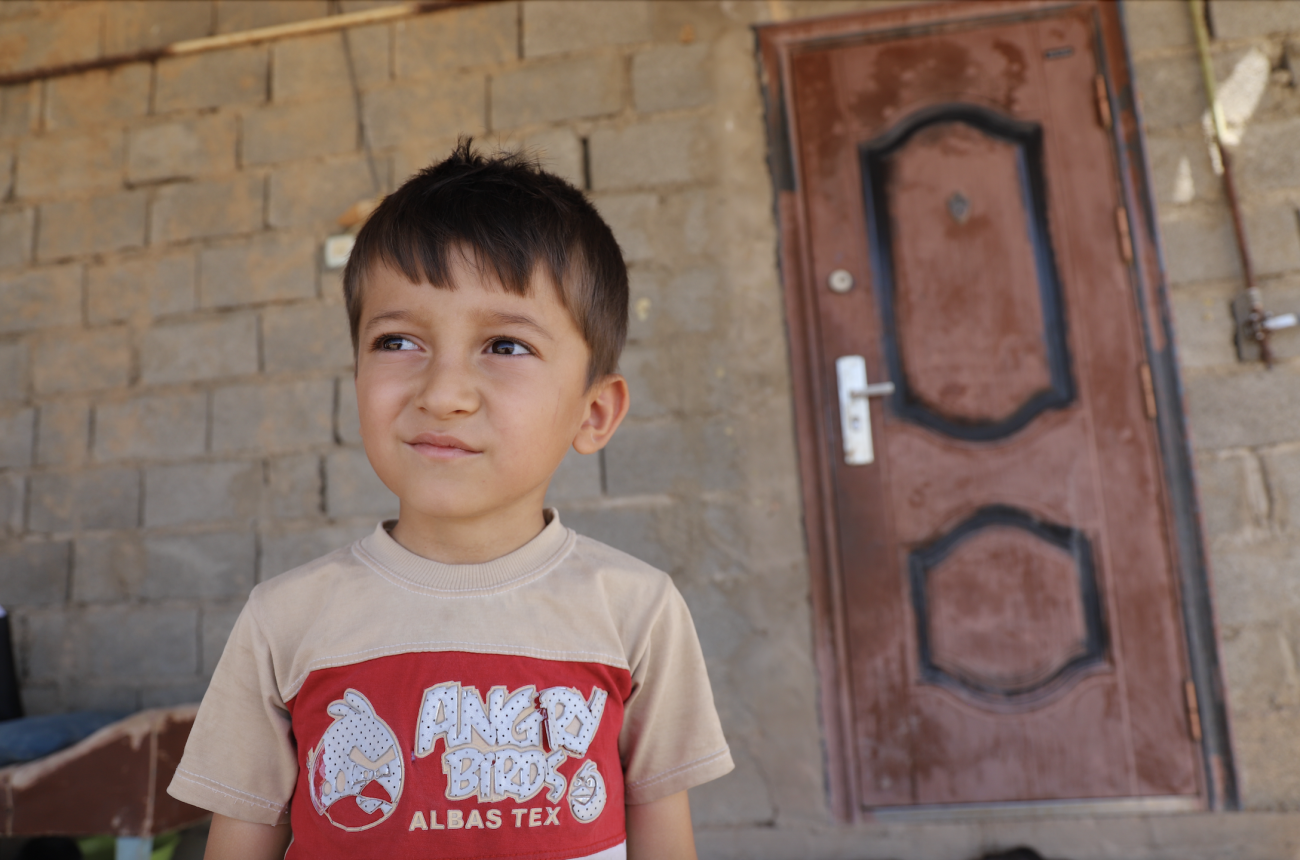But Rahat (name changed) knows what to play with, he finds a strong stick that serves as a knightly horse and probably he would also have a long wooden sward to protect his small house where he lives with his five siblings and dad. Sky’s the limit for his creative innovations.
Rahat has an elder brother, elder twin sisters and he is one of the triplets. His two other triplet siblings are girls with severe disability. Unfortunately, he lost his mother when he was only two years old. When it is time for him to go to school, Rahat will go straight down the street and turn to the right to reach the village school all alone, without his two triplet sisters. They stay in bed all the time and, regrettably, may never have an opportunity to go to school. Rahat will also be much fortunate than his elder siblings and go to school every day. Elder siblings need to take turns to go to school because their dad works full-day, Monday through Saturday. Therefore, one of them has to stay home to take care of their sisters with disability.
Recently, Rahat’s dad had a new friend, a social work specialist. He brought some clothes and food necessary for the family. After his visits, two girls who always had to stay in bed had their first wheelchair, one for two. Resource mobilization at community level is one of the techniques social work specialists use to support families in difficult life situations. Cooperating with local civil society organizations, social work specialists use local resources to increase resilience of families with children with disability and in difficult life situations.
The Ministry of Labour and Social Protection of Turkmenistan recruited 45 social work specialists as part of the UN-Turkmenistan Joint Programme on community-based social services. They have reached out to around 2300 people working over 500 cases that include people in need of all ages and with all types of disabilities. In 81% of cases, families received one or more pensions or allowance. Social work specialists have conducted needs assessments of vulnerable groups, developed individual support plans together with beneficiaries and started to provide professional support at community level.
The Joint Programme on community-based social services implemented by the Government of Turkmenistan and UNICEF, UNDP, UNFPA, and UNODC and funded by the Joint SDG Fund, provided foundational, advanced, and specialized training in social work to social work specialists. Additionally, 106 social work managers, 67 representatives of governmental and non-governmental social service providers, and 79 representatives of allied workforce attended capacity building workshops on foundations of social work and social services. Thus, the foundation was set to pilot new community-based and specialized social services that include services for families with children with disability.
Rahat seems to have more plans for the future. He looks around and thinks what else he can invent next – a pair of wings to fly and dive in the blue sky or another wheelchair for his sisters. Looking a little bit older look for his age, he holds so much hope for the future behind his timidity.








